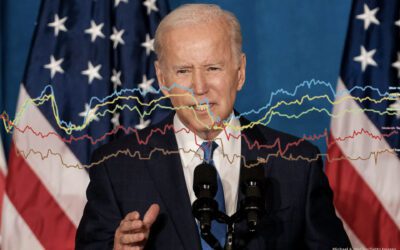President Obama won an Electoral College landslide and a 4-point national victory – against the great odds posed by prolonged high unemployment, lack of income gains, a barely perceptible recovery and political gridlock that kept his job approval at just 50 percent at best. Just as important as his victory is the mandate he won on taxes, according to the major national surveys conducted by Democracy Corps immediately after the election.[1]
While Congress debates the terms of a grand bargain on long-term deficit reduction to avoid the fiscal cliff, voters have clear and strong priorities on taxes – and these contrast starkly with the terms discussed in the President’s negotiations with House Speaker Boehner in the summer of 2011 and with the recommendations of the co-chairs of the President’s deficit commission, Alan Simpson and Erskine Bowles. We want to bring these priorities to your attention as important choices and decisions are made in the coming weeks. A strong majority of voters, including support from both parties, want to see taxes as part of any fiscal cliff deal – and it’s important not to ignore this mandate.
· Almost two-thirds of the voters want tax increases as part of any big bi-partisan deal, and 40 percent believe that it at least half of any deficit reduction should come from revenue. Just a third of those who voted for a Republican candidate for Congress believe the package should depend only on spending cuts.
· Most voters (52 percent) would cancel or postpone the sequester, including a third who would postpone the tax increases and spending cuts until the economy is restored.
We asked voters what they would find acceptable and unacceptable in a $4 trillion deficit reduction deal. Overwhelmingly, voters favor raising taxes on the rich as part of an overall package of deficit reduction. Three in four found acceptable a plan that would create “a higher tax rate on those earning over one million dollars a year” (including a majority of Republicans). Seventy percent agreed with the president’s call to raise taxes on the top 2 percent, while keeping them low for the middle and working class. More than two-thirds found acceptable shutting down corporate tax havens abroad by imposing a minimum tax on overseas profits (including 71 percent of Republicans). Indeed, more than two-thirds would find an agreement unacceptable if it did not raise taxes on the rich, or if it lowered top rates on the rich and the corporations.
Voters also want cuts in waste and subsidies to special interests — much of which comes in the form of tax breaks to large corporations and the rich. For example, 89 percent found acceptable savings from negotiating lower drug prices from drug companies. Nearly two-thirds (65 percent) favored cuts in subsidies to oil companies, agribusiness and multinational corporations.
Just as voters will be unpleasantly surprised if a deficit deal costs jobs and slows the economy, they are likely to object to legislators who vote for a deal that fails to raise tax rates on the rich and on corporations, or to take on wasteful corporate subsidies.

[1] This memo is partly based on a national post-election survey of 811 2012 presidential voters, conducted November 6-7, 2012 by Greenberg Quinlan Rosner for Democracy Corps and the Economic Media Project. Unless otherwise noted, margin of error= +/- 3.46. Survey results were weighted to reflect the National Exit Survey. The memo is also based on a data from a combined set of surveys partnering with several other progressive groups, including Campaign for America’s Future, Women’s Voices. Women Vote Action Fund and Human Rights Campaign.




